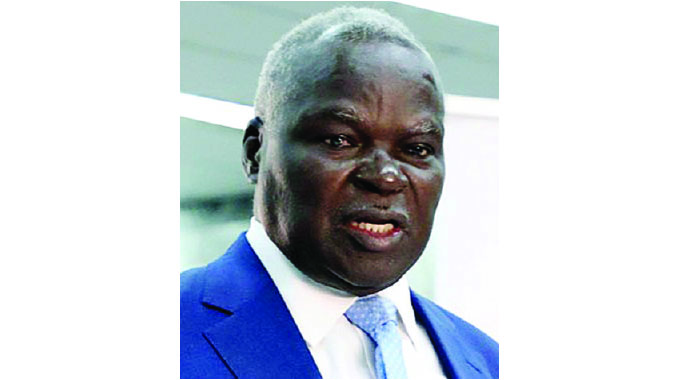History as San chief is installed

Nqobile Tshili, Chronicle Reporter
IT was a historic and joyous moment for the San community yesterday as Government installed the inaugural Chief Goledema as the Second Republic moves to address concerns of this previously marginalised community.
Mr Christopher Dube (59) became the first chief from the San community after they lobbied Government to have a traditional leader.
The San community is found on the outskirts of Bulilima District, Matabeleland South and Tsholotsho District in Matabeleland North where they have lived under the dominion of the Kalanga and Ndebele tribes for the past century.
The San community has been lagging behind in terms of development as the tribe has been struggling to be reintegrated into modern society. The San’s Tjwao language is facing extinction and most of their children were not in the past attending school.
In pre-colonial Zimbabwe, they lived nomadic lifestyles as hunters and gatherers.
In line with President Mnangagwa’s policy of leaving no one and no place behind, several projects have been rolled out to benefit the San community.
Government instructed the security sector to reserve a quota for the San in the recruitment of prison officers, soldiers and police.

Minister July Moyo
President Mnangagwa’s administration also extended the issuance of national documents to the San community to ensure that the community is fully integrated and participates in the national development agenda as the country journeys towards an upper middle-income economy by 2030.
The San community chose Mr Dube as the inaugural chief, in 2021 and he was officially appointed by the Government on November 10 last year.
Chief Goledema is named after his grandfather, a respected rainmaker and senior traditionalist who resisted white rule in Tsholotsho.
Prior to the Second Republic’s interventions, the San people lived in their own world, far removed from the rest of the country. Most of them did not have birth certificates or identity documents and as such could not access many services and could not even vote during the country’s general elections.
Yesterday’s colourful ceremony, which was presided over by Local Government and Public Works Minister July Moyo took place at Mtshina Secondary School in Tsholotsho district. Hundreds of people thronged the venue to witness the installation of their first Chief.
The historic installation was witnessed by the Council of Chiefs deputy president Chief Mtshane and other chiefs from Matabeleland region.
The people broke into song and dance as they celebrated the dawn of a new era following the installation of Chief Goledema.
The Chief is expected to appoint headmen who will also appoint village heads to complete the process.
Addressing the gathering, Minister Moyo said the installation of Chief Goledema fulfils President Mnangagwa’s policy of inclusive development.
“It is a momentous occasion as we are installing the first and substantive Chief Goledema Mr Christopher Dube.
“This chieftainship was created by the Second Republic which is ably led by His Excellency, the President of the Republic of Zimbabwe Cde Dr ED Mnangagwa,” he said.
Minister Moyo said the establishment of the Sani chieftainship ensured that they are included in all Government programmes like other communities.
He said historically the Tjwao are the longest occupants of the country but were later dominated by Bantu-speaking groups before being further dispersed by white colonialists. He said historical challenges disenfranchised the San from participating in economic activities.
Minister Moyo said San community did not have leadership structures like the Bantu- speaking groups.
He said when Government engaged the people, they requested to have their own chief among other things.
“History shows that they did not have a chief, but the Second Republic is saying we can no longer have the Tjwao people excluded and left behind. Without this leadership, they were discriminated against and as such could not enjoy basic rights to their ancestral property, language, cultures and forms of governance.
They could also not access social services such as education, health, water, sanitation and housing and so on,” said Minister Moyo.
He commended traditional leaders from Matabeleland North for working closely with Government in establishing the San chieftainship.
“I want to thank the leadership of chiefs here in Matabeleland North for having come to this community and selected a chief. One of the chiefs who came to select this chieftainship is Chief Mathuphula who is a member of the National Council of Chiefs,” said Minister Moyo. He said the new chief has been instrumental in lobbying for the preservation of the rights and cultures of the San community.
“This new chief has many challenges. With the support from you who live in this area and six other chiefs, we can solve those problems. The first challenge is to delineate the boundaries which the new chief will cover,” he said.
Chief Goledema was recently given his service vehicle as part of Government’s ongoing programme to ensure chiefs are mobile.
Minister Moyo said the community has shown confidence in Chief Goledema and in return he should be impartial in leading his subjects.
He challenged the community to take up employment opportunities that Government has availed to the San community.

Tshwa community members dance during the installation of Chief Goledema yesterday
“To the children of the Tjwao people, the President has directed that you ought to join Zimbabwe Republic Police, prisons, army and the Zimbabwe Parks and Wildlife Management Authority,” said Minister Moyo.
Chief Goledema said the San community is grateful to Government for listening to their concerns.
“The Government has listened to our cries and there is a lot that needs to be done. It will be difficult to develop the area without a headmen and village heads so these are things that we are going to be looking at,” he said — @nqotshili











Comments